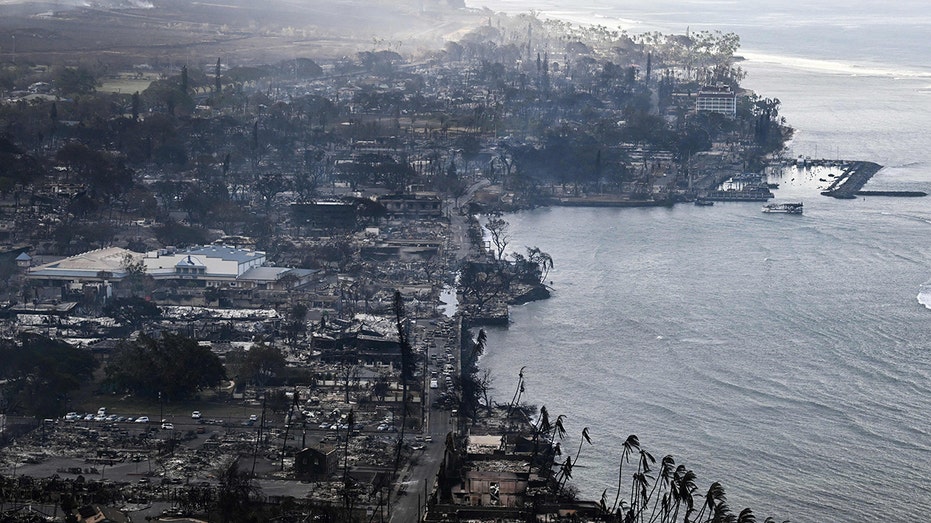[ad_1]

Hawaii authorities say the coastal waters off the wildfire-hit city of Lahaina do not pose a significant risk to human health and are safe to surf and swim there.
The state Department of Health announced the decision Thursday after reviewing water sampling test results collected by groups including researchers from the University of Hawaii, the Surfrider Foundation and the state Department of Land and Natural Resources.
Authorities continue to limit access to some coastal areas outside of the city of Maui burn zone as cleanup from the Aug. 8 wildfire continues, and recreation will not be permitted at these locations.
MAUI WILDFIRES REPORT DELAYED DUE TO CITATIONS FROM COUNTY AGENCY
Authorities have been telling residents and visitors to limit their exposure to Lahaina’s waters since the deadly fire destroyed the historic city. They have also told people to avoid eating fish from Lahaina waters. The department’s announcement did not address the safety of eating fish and other marine life.
Lahaina’s waters are popular with surfers, swimmers and divers. Before the fire, tour companies used to take divers to see the coral reefs in front of the city. Since the fire, tours have been frequenting West Maui’s reefs heading north or south.
The department said it was particularly interested in the metals’ test results because of their high concentrations in wildfire ash and the possibility that rain and runoff could transport them to the ocean.
Measurements taken by the University of Hawaii included assessments of nutrients, metals, and carbonate chemistry. The Surfrider Foundation tested for metals and polyaromatic hydrocarbons, which are a class of chemicals found naturally in coal, crude oil, and gasoline.
The state analyzed sediment samples from the port for metals, dioxins, total petroleum hydrocarbons and other contaminants.
Scientists say there has never been another case of a large urban fire burning next to a coral reef anywhere in the world. They are using the Maui wildfire as an opportunity to study how chemicals and metals from burning plastics, lead paint and lithium-ion batteries could affect delicate reef ecosystems.
[ad_2]



